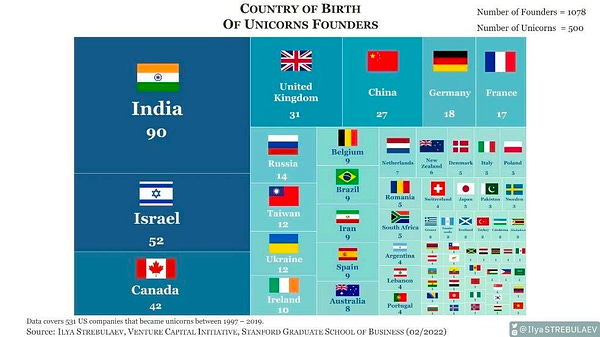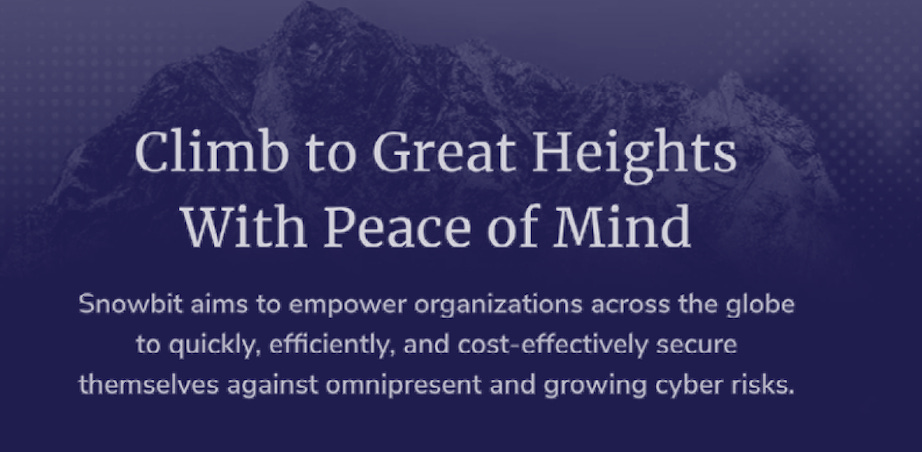An Indian angel investor, a former Israeli intelligence officer, and a new cyber security venture. What could go wrong?
Also, Israeli PM Naftali Bennett is headed to India in April to celebrate 30 years of India-Israel ties.
Dear all,
Wow! It’s mid-March already! And so much has happened over the past few months (how about the last three weeks!) ; the news cycle hasn’t shown any sign of slowing.
So let’s get right to it:
The Russia-Ukraine war continues to dominate headlines, as it should, given the immense loss of life, the millions of people who have become refugees, the destruction of hospitals & residential areas and other valuable infrastructure, and so much more.
Yes, the coverage has been racist, bigoted and a colossal mess overall.
Given the scale of conflict and the ways in which the western world has mobilized, the impacts will be felt by all.
It has already led to several alterations in geo-politics. Saudi Arabia (or its oil) has become more relevant owing to the US-led sanctions on Russia; China has become something of a King Maker and will likely hold on to its cards for some time to come; Israel has been elevated to the role of a de facto mediator between the two European states. So yes, it’s gone all haywire.
What about India, you ask? India has tiptoed carefully. Abstaining from the March 2 UN resolution condemning the Russian invasion, it continues to dance around the topic.
Meanwhile, the Hindu right wing has shown immense support for the Russians even as Indian students were running from Russian bombs in Ukraine. India has no choice but to invoke its politically expedient non-aligned credentials because Russia is its biggest and most reliable arms supplier (Israel is second). This type of relationship, cultivated over decades (from the time of the former Soviet Union) won’t alter suddenly. Russia, as recently as January 2020, dismissed a China-led call for international intervention on the disputed region of Kashmir.
As writer Somdeep Sen writes:
“About the same time, after envoys of several countries announced their intention to visit Kashmir, the Russian Ambassador to India Nikolay Kudashev refused to do so. He said, “I do not feel there is a reason for me to travel. This is an internal matter belonging to the Constitution of India … This is not an issue for Russia. Those who believe that this is an issue, those who are concerned about the situation in Kashmir, those who doubt the Indian policies in Kashmir can travel and see for themselves. We never put it in doubt.”
Moreover, India knows it need not throw in all its bones with the US for Washington will still require Indian assistance in its other fight against China. In other words, Washington is disappointed, but don’t expect anything to unravel here.
So back to what India-Israel are up to these days:
On diplomacy: Israeli PM Naftali Bennett is scheduled to visit New Delhi in early April. Expect fireworks (welcoming him). Bennett will become the second Israeli PM to visit India, after Benjamin Netanyahu. It’s a big deal because it will mark 30 years of diplomatic ties between the two countries and it demonstrates once more India’s importance to Israeli foreign policy. Given the ongoing war in Ukraine, the meeting becomes even more pressing as they both look to navigate the shifting geo-political landscape.
On tech: Earlier this month, India hosted Israel for a “deep tech” summit.
According to the Times of India:
“Marking 30 years of the India-Israel relationship, the event included eight roundtables in areas like Agritech, Fintech, D2C brands, Acquihire, Modern Data Apps, Web 3.0 and more. In addition, the 3 masterclass sessions held by leading Israeli experts highlighted how companies are moving beyond traditional analytics to leverage Cloud, Data engineering, Cyber Security, Testing, Observability, Martech, Fintech and Gaming.”
And finally, to the headline story: Last week, Israel-based tech firm Coralogix launched a new Indo-Israeli cyber security firm called “Snowbit”. It said it would be investing $10m in the first phase of the project.
“Snowbit” is reportedly the first India-Israel venture in cyber security. India will be both a developmental hub as well as a market.
But let’s talk about the two co-founders of “Snowbit”:
Navdeep Manaktala, is a former Amazon Web Service (AWS) executive. He tweets mostly about start-ups, complains about the small tax base in India and occasionally retweets praise for the Indian army.
He is also very vocal about enhancing India-Israel ties in tech and start-ups.


His Israeli counterpart and co-founder, Zack Barak, has a more colorful history. He spent six years in the Israeli army (two years as an intelligence field officer and four years as an infantry battalion officer). He also spent two years with arms manufacturer Israeli Aerospace Industries (IAI). Between all of that he was an Amazon Web Service (AWS) executive.
But wait. Let’s now talk about the company, “Coralogix”, launching “Snowbit”.
Coralogix was co-founded by Ariel Assaraf, a veteran of the Israeli intelligence elite unit 8200, who also spent time as a product manager in the Israeli army.
Elite unit 8200 has been described as akin to the National Security Agency (NSA). Rest of World said it had “attained an almost mythical cachet in the global tech industry.” According to several media reports, the 8200 unit operates one of the largest “listening bases” in the world. It monitors phone calls, emails, and other communications. It also has covert listening units in the occupied Palestinian territories. But there’s more.
Think of unit 8200 and the Israeli military as a kind of assembly line into the Israeli private sector - usually involving arms or big tech.
According to a 2018 investigation by Haaretz, an estimated 80% of the 2,300 people who founded Israel’s 700 cybersecurity companies had come through Israeli intelligence.
So where does that leave “Snowbit”?
Well, if there was ever a need for a case study as to how working with an Israeli tech bro would land you front and centre seats with the Israeli military, then “Snowbit” would more than suffice.
The company may appear to be a private venture created by two private individuals, but in reality, they are products of a military-industrial complex designed to open doors.
It is worth noting that given that “Snowbit” was essentially founded by professional spies whose expertise is based on their ability to undermine the rights of ordinary people (around the world but especially Palestinians) it seems peculiar that they will now be the keeper of cyber security for a myriad of clients in India.
And considering that no one has been held accountable for the Pegasus affair, in which Israeli-software was used (in all likelihood by Modi’s government) to hack into the phones of activists and opposition politicians in India, the emergence of “Snowbit” as a private agent setting up shop in India is, frankly, terrifying.
The “Snowbit” story is also particularly relevant given recent developments in the US where hundreds of Amazon Web Service (AWS) and Google workers have petitioned their employers to cancel Project Nimbus, a $1.2bn contract between AWS, Google and the Israeli military.
The ties between American big tech and Israel are deep seated.
In India, the ecosystem is just getting started.
Curious to hear your thoughts on this! So please do send through comments and questions.
Thank you for reading, as always.
Please do consider subscribing to the newsletter and sharing it, too!
until next time,
Azad
PS. I know it’s been a few months since my last newsletter. Apologies if you’ve been waiting at the edge of your seat for an update :) I have been working on a longer, more substantial project about India-Israel. More to come.




